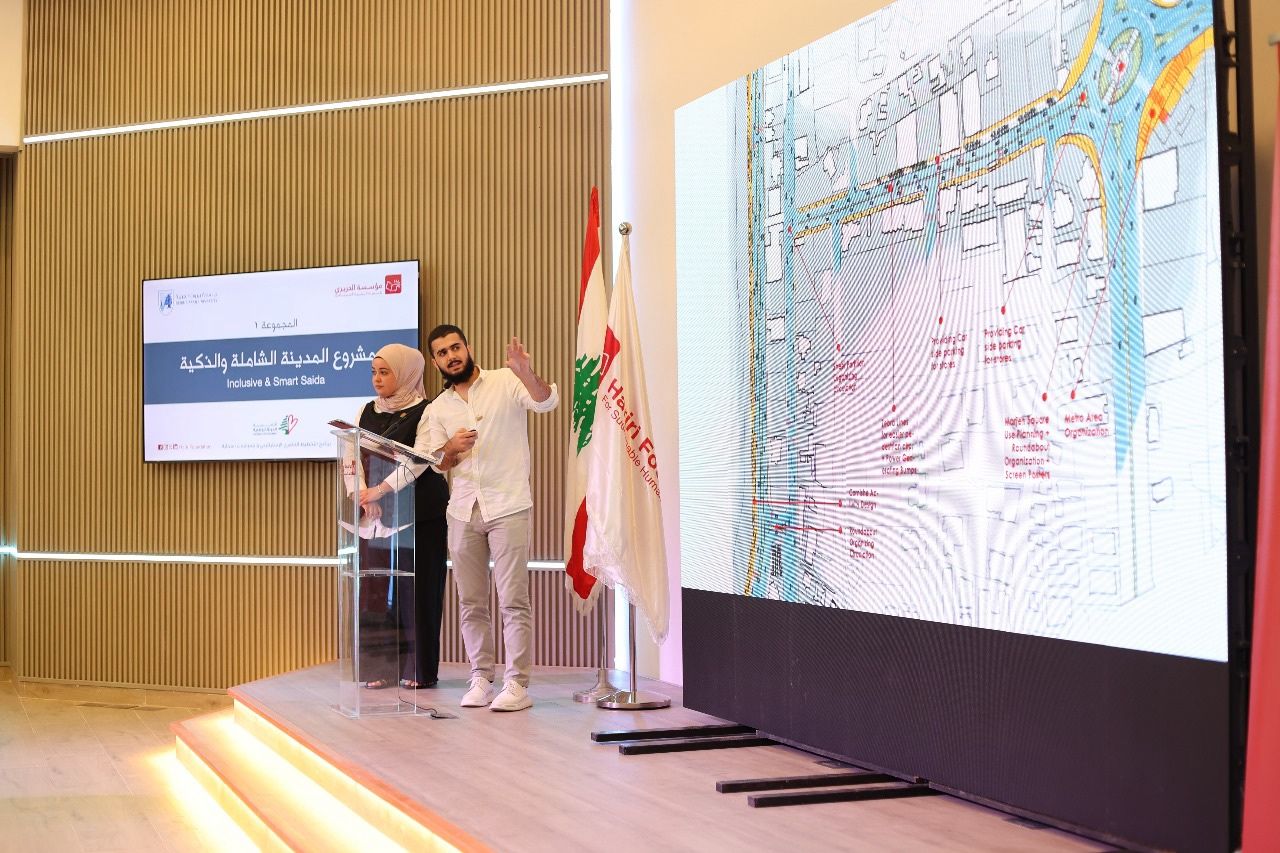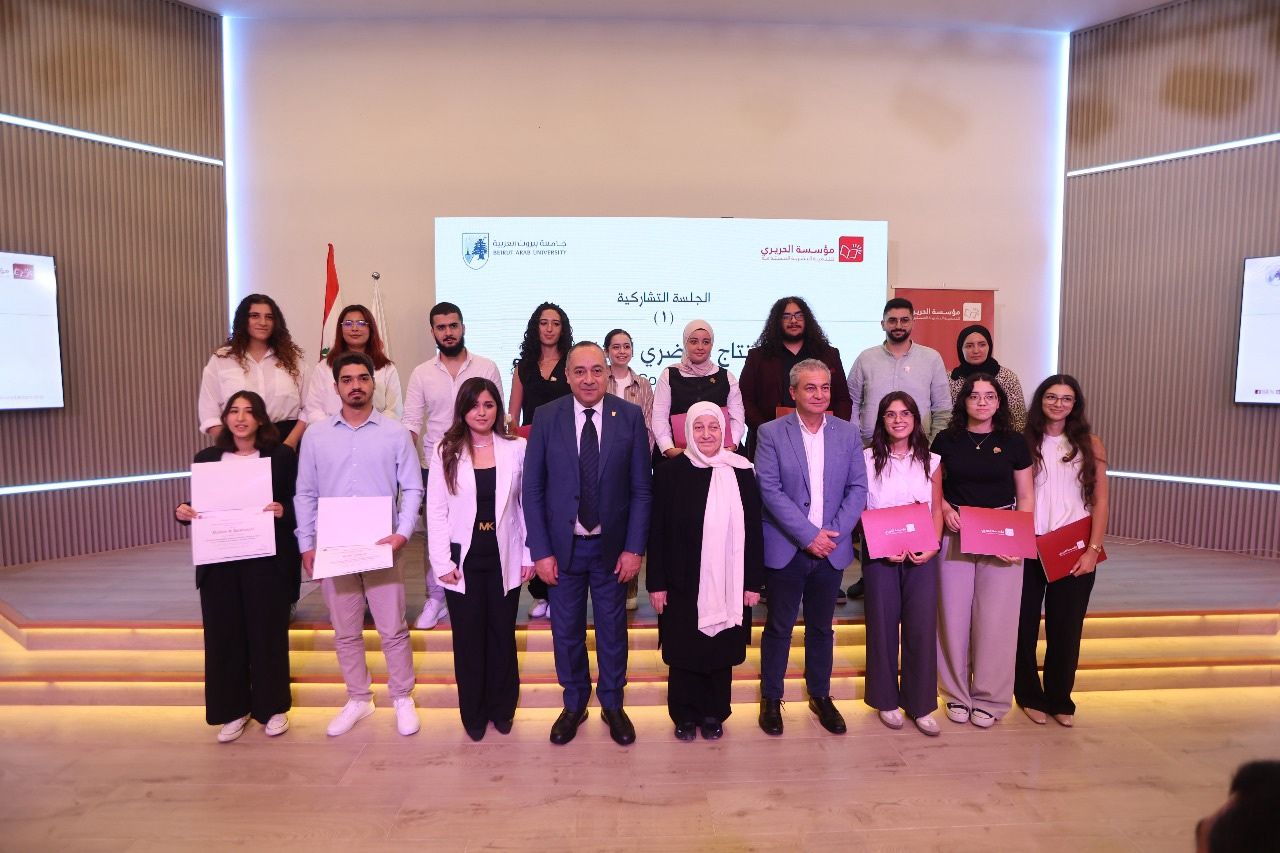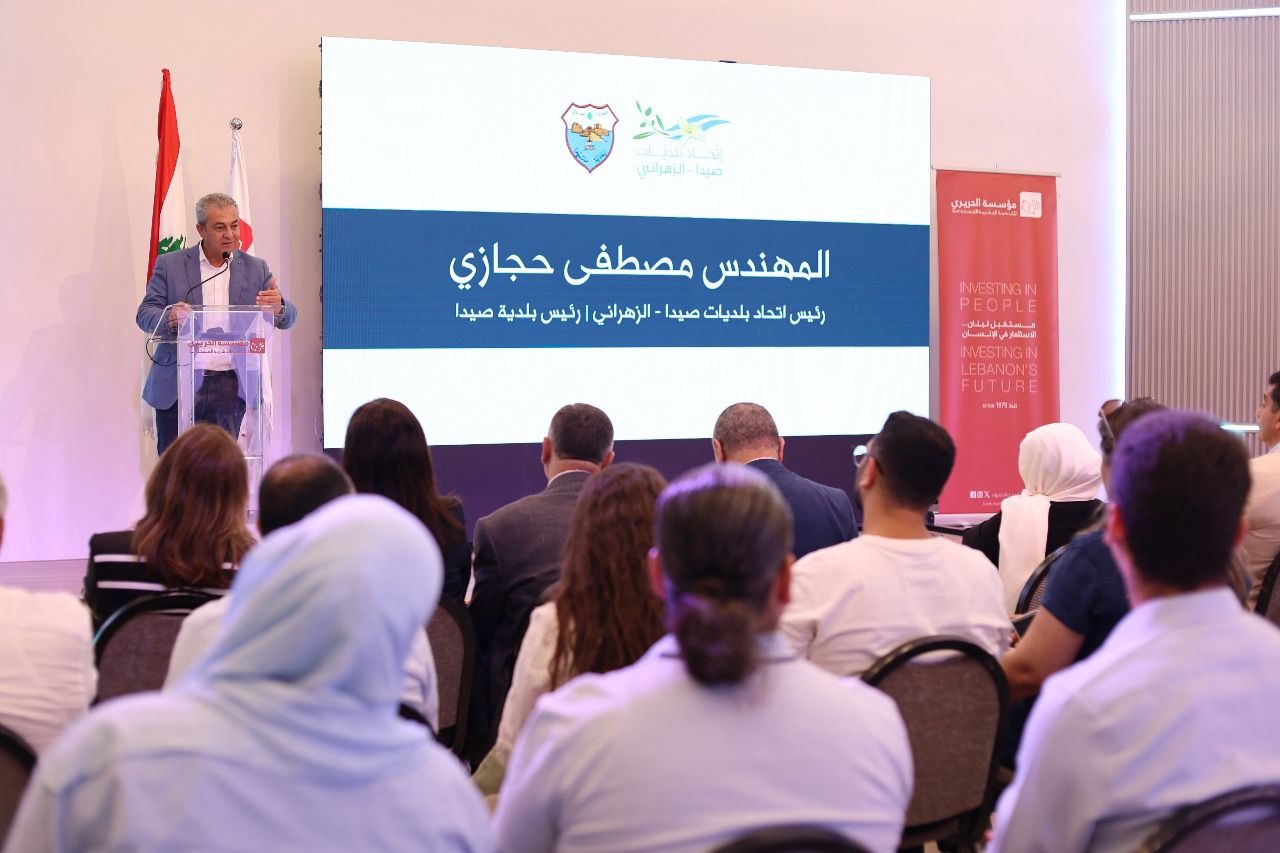Session on "Urban Co-Production"
The Hariri Foundation’s National State Academy organized a session titled “Urban Co-production” in partnership with Beirut Arab University – Faculty of Architecture (Design and Built Environment) at the academy’s headquarters in Saida.
In line with the Strategic Urban Planning Program at the National State Academy, the session addressed potential participatory and innovative solutions in response to ongoing urban transformations, exploring venues of collaboration among academic, research, private, and civil society institutions in close coordination with local authorities and the public sector.
Urban Co-Production
The concept of the session, “urban co-production,” expresses the daily interaction between citizens and stakeholders. The concept is operationalized through an interactive model that consolidates institutional partnerships and daily collaborations within an ongoing process of producing cities beyond finite projects, contributing to the formulation of long-term urban solutions.
Academy & Partnerships
Research and Development Manager at the Hariri Foundation, Architect Mohammad Al Hariri, highlighted the model adopted by the Strategic Urban Planning Program in translating the the National State Academy’s objectives in promoting active citizenship through the development and dissemination of participatory mechanisms that place academia and civil society at the heart of urban governance, based on research references, reports, and international agendas.
The Faculty’s Assistant Dean, Dr. Hiba Mohsen, presented the programs, projects, and initiatives of the faculty’s Urban Lab, and the possible areas of cooperation through the lab.
The Program Coordinator at the National State Academy, Engineer Jihad Akoum, presented the program’s objectives, mechanisms, and ongoing projects. He also introduced the Urban Sustainability Design Charrette organized at the academy, and leading to this event.

Urban Sustainability Design Charrette
The charrette engaged 15 students in capacity development, enhancing academic and professional skills, learning about methodologies for proposing policies and alternatives, and addressing local societal issues. The charrette was supported by dialogue sessions with local decision makers.
At the event, participants presented the designs outcomes for their proposed projects in a number of neighborhoods and streets across the city of Saida, covering three areas (Inclusive and Smart City, Nature-Positive City, and Active and Vibrant City). This was followed by a general discussion with the audience and interventions by the participants.

Bahia Hariri
Mrs. Bahia Hariri, president of the Hariri Foundation, emphasized in her speech that the Hariri Foundation, since its inception, has been working to activate the role of the Lebanese citizen in achieving sustainable human development and deepening their sense of belonging and national identity, based on partnerships between civil society, academia, and the modern state.
Hariri showcased the evolution of the cooperation with Beirut Arab University, through providing educational scholarships or through the exchange of research and applied expertise over more than four decades. Hariri indicated that this session marks a milestone for renewing the joint, long-standing research and institutional partnership with Beirut Arab University that serves Lebanese cities.

Hassan Abdul Salam
Professor Hassan Abdul Salam, Dean of the Faculty of Architecture (Design & Built Environment) at Beirut Arab University, considered that the partnership with the Hariri Foundation has already yielded tangible results that reflect the spirit of cooperation, development, exchange of information and expertise, and the pursuit of creativity. He also noted that this partnership offers a broader horizon for the future of cities and urban communities, and better local policies—both urgent and medium-term—and also strategic ones that anticipate a better future.
Abdul Salam showcased the achievements of the workshops, field studies, and scientific meetings leading to the sessions, confirming that it clearly reflects the university and foundation’s commitment to achieving sustainable development and improving the quality of interactive academic education.

Mustafa Hijazi
The mayor of Saida, Engineer Mustafa Hijazi, spoke, thanking the Hariri Foundation for launching the program. He praised the organization of the session in partnership with Beirut Arab University, the ideas presented during the session, and the projects presented by the students. He expressed the Municipal Council’s readiness to discuss these ideas and build upon them, especially in the next phase. He reviewed a number of projects the municipality has worked on and is currently working on, as well as the studies it has completed in this field. He invited the students to review these projects and benefit from them within the framework of the program.
Finally, Hariri, along with Dr. Abdel Salam and Engineer Hijazi, presented the students participating in the program with certificates of participation.